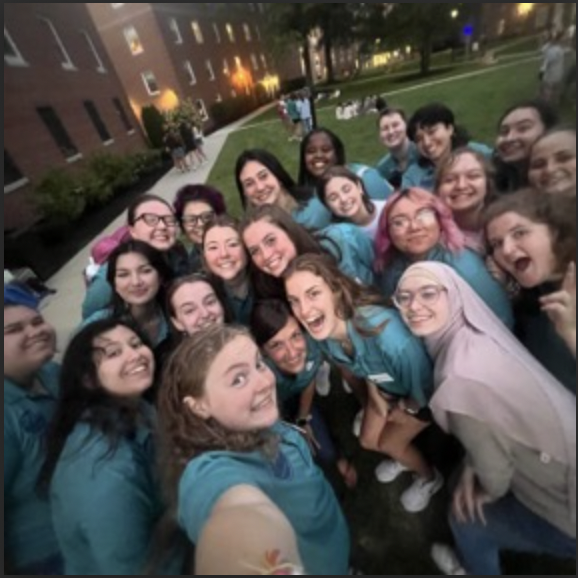By Katie Sittig-Boyd
Staff Writer
November and December are both stressful months for multiple reasons: grades, final exams, holidays and associated stress, family vacations that drag on for too long, and so on. One thing that gets brought up frequently is the weight gain that is associated with the holiday season, but unfortunately, there is a lot that goes undiscussed with regards to mental health.
The later months of the year are already cause for concern, since shorter days, decreased daylight, and school-related pressure all contribute to a high-stress atmosphere potentially rife with mental health issues such as depression, anxiety, and eating troubles.
One aspect of the holidays that is seldom addressed is that many students are forced to spend vacations with family members, and these relationships may be detrimental to their mental health. College, in spite of its associated stresses, does provide a space away from home where people can develop their own identity expression and living habits. However, home often creates unhealthy constraints on people who already have well-established day-to-day routines designed to serve their individual self-care needs.
Another trigger may be discussions of weight: while gaining weight may be of concern to some people, many individuals struggle with eating disorders, and holiday times can be particularly difficult in some cases. Frequent discussion of weight can be triggering, and along with increased pressure to eat around the holidays, people who struggle with issues of body image and food triggers may suffer their way through vacation.
It is incredibly petty to spout rhetoric centered on staying “slim” and “eating less” during winter break. While much of this advice may be well-intentioned, it can be incredibly shaming. Eating dessert at holiday events is not a negative thing inherently, and may in fact be part of the healing process for individuals who have tumultuous relationships with food.
Several people who have struggled in the past with eating disorders already have an acute awareness of which foods they “can” and “cannot” eat, and often these articles on how to eat “healthily” around the holidays recommend cutting down on how much people eat, specify which foods are “good” and which are “bad,” and in general reinforce the mentality that there is a certain way to eat, which may compound with an individual’s preexisting difficult relationship with food. The focus on “healthy eating” just exacerbates the stress of the holiday season for people managing their own personal and dietary needs.
This holiday season, keep in mind that people may have their own reasons to perceive vacation as stressful or negative, and be sure to encourage proper self-care for friends. Likewise, remember to practice personal self-care as necessary and take breaks from negative situations whenever possible if the season gets too intense.


















